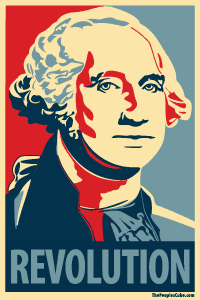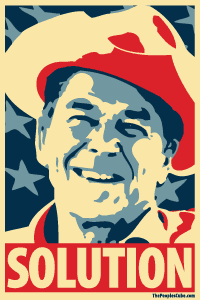By Lauri B. Regan | June 20, 2012 | American Thinker
Last week, I attended a luncheon hosted by the Foundation for Defense of Democracies, at which I sat next to former Navy SEAL, Leif Babin. Among Leif’s numerous and impressive accomplishments is his completion of three tours in Iraq, earning a Silver Star, two Bronze Stars, and a Purple Heart. Not only was I proud to have an opportunity to talk with one of our nation’s heroes, but I was in awe of his bravery, candor, and pride in serving our great country. Leif is a true patriot.
Upon my return to my office, I read of the repulsive comments of liberal radio show host Bill Press, calling the national anthem “stupid” and stating, “I’m embarrassed, I’m embarrassed every time I hear it.” This abhorrent garbage followed on the heels of the news of a New York City elementary school principal who prohibited kindergarteners from singing “God Bless the USA” at their graduation ceremony, replacing it with Justin Bieber’s “Baby.” After drawing national attention, the Bieber song was also dropped from the event, but the NYC Schools chancellor refused to reinstate the singing of “USA,” which includes the following lyrics: [Read more…]




 Coined by Harvard Professor Clayton Christensen, author of The Innovator’s Dilemma, the term “disruptive innovation” is perhaps not common in modern day vernacular, but it is something you have experienced before and likely will again throughout all stages of life. Counterintuitively, disruptive innovations do not necessarily find origin in a specific “invention,” rather they foster a different utility for a pre-existing product, service or technology, effectively creating an opportunity for great change that leads to a brand new market. Ultimately, the innovation “disrupts” the status-quo, transforming modern-day life.
Coined by Harvard Professor Clayton Christensen, author of The Innovator’s Dilemma, the term “disruptive innovation” is perhaps not common in modern day vernacular, but it is something you have experienced before and likely will again throughout all stages of life. Counterintuitively, disruptive innovations do not necessarily find origin in a specific “invention,” rather they foster a different utility for a pre-existing product, service or technology, effectively creating an opportunity for great change that leads to a brand new market. Ultimately, the innovation “disrupts” the status-quo, transforming modern-day life. the Disruptive Innovation Awards have recognized companies and individuals who have distinguished themselves by successfully disrupting markets to effect change in the worlds of business, technology, social justice and the arts. The honorees represented a broad spectrum of innovators from Twitter co-founder Jack Dorsey to members of DARPA. Notably, one of this year’s honorees was Dr. Steven Curley who has carried on the late John Kanzius’ pioneering medical research in the use of high frequency radio waves to kill cancer cells. You might recall The Blaze and Glenn Beck’s extensive
the Disruptive Innovation Awards have recognized companies and individuals who have distinguished themselves by successfully disrupting markets to effect change in the worlds of business, technology, social justice and the arts. The honorees represented a broad spectrum of innovators from Twitter co-founder Jack Dorsey to members of DARPA. Notably, one of this year’s honorees was Dr. Steven Curley who has carried on the late John Kanzius’ pioneering medical research in the use of high frequency radio waves to kill cancer cells. You might recall The Blaze and Glenn Beck’s extensive  While many consider Smith’s “The Wealth of Nations” his greatest achievement, Smith himself saw the “The Theory of Moral Sentiments” to be his magnum opus, as he intended it to be the underpinning for The Wealth of Nations, explaining how man strives to be virtuous through engaging in moral and proper conduct. This is discerned, according to Smith, through becoming an impartial spectator of others. He argued that while independent-self interest is in everyone’s nature, humans also innately share the same emotions and instinctual desire to please others while gaining affection, approval and understanding of their own. This, he posited, could only be created through fostering sympathy among even the strangest of bedfellows. Through planting the seed of self-doubt that causes one to question his or her own perceptions and morality, humility is thus fostered.
While many consider Smith’s “The Wealth of Nations” his greatest achievement, Smith himself saw the “The Theory of Moral Sentiments” to be his magnum opus, as he intended it to be the underpinning for The Wealth of Nations, explaining how man strives to be virtuous through engaging in moral and proper conduct. This is discerned, according to Smith, through becoming an impartial spectator of others. He argued that while independent-self interest is in everyone’s nature, humans also innately share the same emotions and instinctual desire to please others while gaining affection, approval and understanding of their own. This, he posited, could only be created through fostering sympathy among even the strangest of bedfellows. Through planting the seed of self-doubt that causes one to question his or her own perceptions and morality, humility is thus fostered.










